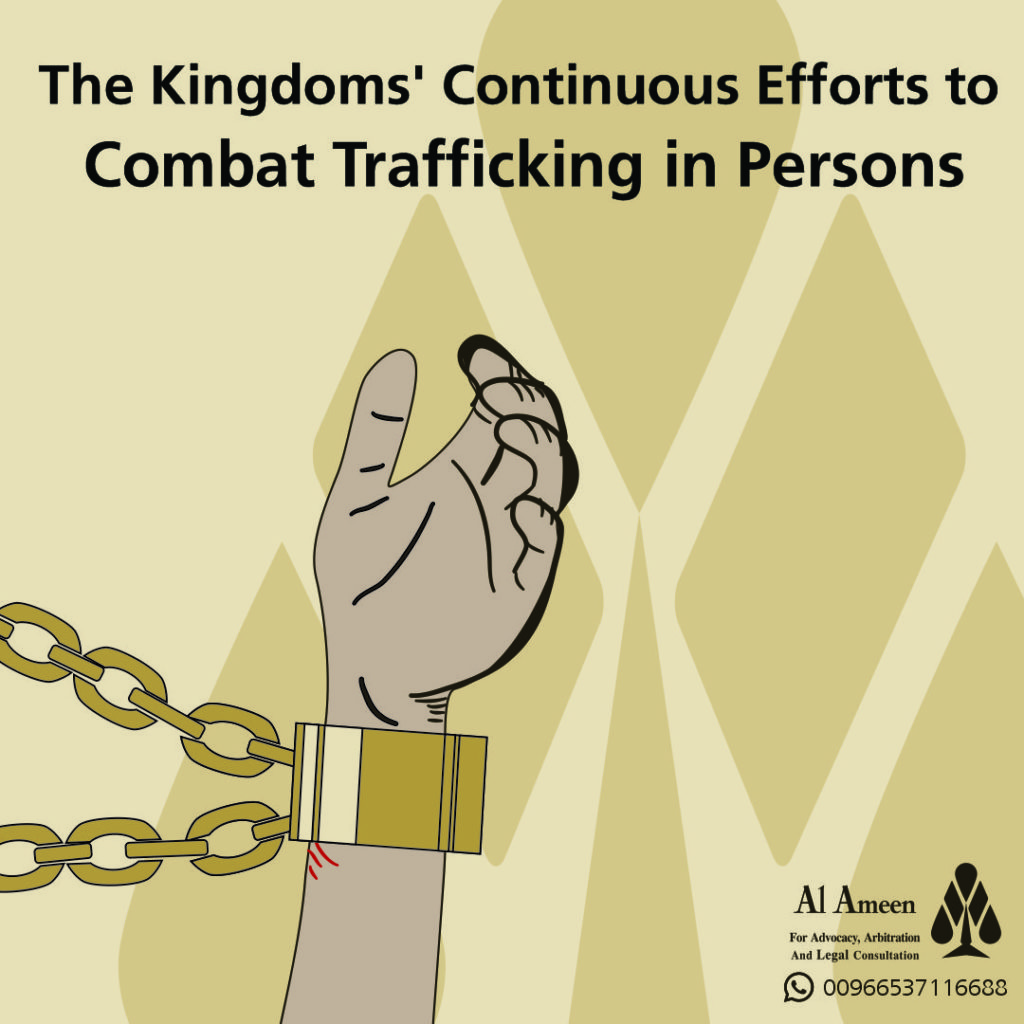Saudi Arabia continues its effort to counter trafficking in persons on both the local and international fronts. In keeping with the Islamic Sharia, which prohibits this crime, the Anti-Trafficking in Persons Law came into effect in 2009, which criminalized all forms of trafficking in persons. Government institutions began implementing safeguards in line with the law. In terms of prevention, the Ministry of Human Resources and Social Development implemented a number of reforms in 2020 aimed at safeguarding employees from being susceptible to forms of trafficking. Examples include the Ministry’s Labor Reform Initiative (LRI) program, which bolsters the workers ability to change employers and loosens restrictions on movement to and from the country. The Ministry of Interior as also issued a decision that regards trafficking in persons to be a prison-related crime.
On the international scene, Saudi Arabia signed and ratified the UN Protocol to Prevent, Suppress and Punish Trafficking in Persons, Especially Women and Children, the chief protocol defining trafficking in persons and highlighting international cooperation to combat this crime.
The Kingdom further bolstered its national legislation on this matter by launching new amendments to the Anti-Trafficking in Persons Law in order to bring current legislation up to date with the UN Protocol, especially in the areas of victim support and international cooperation. The projects most prominent provisions include:
- Expanding what falls under trafficking in persons by criminalizing the hiding, detaining, or destroying of a victims passport as a means of pressuring them.
- Adding punishments to those who instigated or benefited from the victims services while knowing of their status as a victim.
- Adding provisions relating to national, regional, and international cooperation between government and judicial entities as well as cooperation between law enforcement.
Conclusion
The proposed legislative changes demonstrate the continuous role of the Kingdom in combating trafficking in persons, which has become one of the most widespread crimes in modern times and requires extensive international cooperation to prevent it and combat it. The legislative changes would align national legislation with international protocols that Kingdom has ratified in order for the Kingdom to continue as a regional and international leader in countering this heinous crime.




